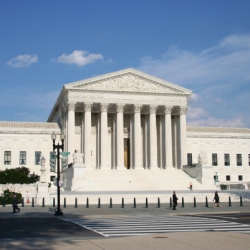A recent article in the ABA Journal, a publication by the American Bar Association, discussed the Professional and Amateur Sports Protection Act is unconstitutional. The ABA Journal cited the Pacific Legal Foundation‘s amicus brief on the PASPA, which said that the PASPA’s interpretation of the Commerce Clause is flawed and dangerous to state’s rights.
The danger posed if the PASPA was found constitution could affect many areas of people’s lives, says the PLF. If allowed to stand, the federal government would have the power to grant to any one state monopolistic power over an industry. The central government could set different minimum wage standards between the states. D.C. politicians could pick-and-choose the drug laws by state.
Misinterpretation of the Commerce Clause
In other words, the PASPA distorts the Commerce Clause of the U.S. Constitution, because it gives the federal government the right to outlaw activities in most states, while making it legal in one state. That is what the PASPA has done to sports betting. While Nevada, Oregon, Montana, and Delaware are granted the right to accept sports bets, states like New Jersey are barred arbitrarily from doing the same thing. The federal government has picked favorites, giving some an unfair advantage over others. Becuase Nevada is given special legal authority the other states isn’t, it has been given a monopoly to open sportsbooks.
This isn’t constitutional, because the Commerce Clause gives the Congress the authority to “to use the commerce clause to break down barriers amongst the states and create a national common market.” The PASPA has hardly created a common national market–it has raised barriers between the states.
Supreme Court Likely to Rule
The ABA Journal suggests that the current lawsuit by New Jersey could make its way through appeals court and eventually be seen by the U.S. Supreme Court. That wasn’t the case earlier this year, when the PLF and Cato Institute submitted an amicus brief asking the Supreme Court to consider whether the PASPA was constitutional.
The court decided not to listen to arguments, but the American Bar Association believes it is only a matter of time before the court changes that stance–if New Jersey continues to press the issue. Though the court denied the last request, New Jersey changed its laws to remove some of the legal concerns that judges at several levels felt hindered their case. With sports betting laws repealed in the state, their case could be on much firmer legal ground this time.
ABA Journal Quote
The ABA Journal article says the Congress should have either banned sports betting categorically, or allowed it categorically. To pick-and-choose which states get to have select kinds of gambling is a grave imposition on states rights–one which could have profound consequences.
The article states, “The legislative history asserts that Congress was concerned about the evils of gambling when it adopted PASPA,” says Jonathan Wood, an attorney with the Sacramento, California-based Pacific Legal Foundation, which filed an amicus brief urging the Supreme Court to decide the issue. “But if it truly had those fears, it should have forbidden the practice everywhere. Instead, it forbids New Jerseyans and most everyone else from doing what those in Nevada are free to do.”
Nevada Operates a Monopoly
In the 22 years since the PASPA was passed, Nevada has operated a virtual sportsbook monopoly which is worth over $3 billion a year. To allow one state a $3 billion advantage over all other states is a dangerous precedent. Such powers could be used by the Congress to reward or punish states in the future, while taking away state’s abilities to set their own policies.
PASPA Balkanized the Country
Jonathan Wood adds: “[The Commerce Clause] doesn’t give Congress the power to balkanize the country by setting different rules by state. Quite to the contrary, the founding fathers intended Congress to use the commerce clause to break down barriers amongst the states and create a national common market.”
“If Congress’ unequal treatment was kosher here, it could likewise set different minimum wages by state, adopt different drug laws for each state, or grant a monopoly over any other industry to a particular state. Each of those, like PASPA, would be improper and a significant threat to federalism,” said the PLF lawyer.

